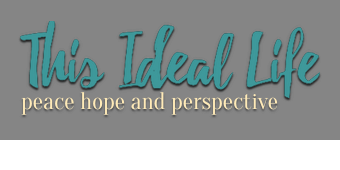Finding an oncologist
I believe that finding a good oncologist is very personal. It’s like picking your favorite kind of dog in that one person may love a certain breed while another person does not. Believe it or not, the personal relationship with an oncologist is a major player in how much I like them. You might think that their treatment expertise or overall experience would be the driving factor, but for me it isn’t. Don’t get me wrong, their expertise is very important, but for my situation, the treatment path is fairly well-trodden. There isn’t much mystery nor have I found many varying opinions from my various oncologists about how to treat TNBC. There are some differences, and I have found over time that I trust one oncologist more than the others. Luckily for me, that’s also the oncologist that I most related to personally. Unfortunately, he isn’t local, and I’d have to travel to stay with him. There are many variables at play when deciding on a hospital/oncologist.
Ratings: When I was first diagnosed, Mark spent hours upon hours on his laptop looking up the best-rated cancer hospitals in the country. His knee-jerk reaction was to attempt to move the family to Rochester, MN so I could be seen at Mayo Clinic (we had heard that was the best). He even set up an appointment there, but it was untenable in the end. Also, he found that near our location a mere one hour down the road was Indiana University’s Simon Cancer Clinic which was ranked in the top 25 nationally by the US News and World Report. It didn’t seem like top 25 was good enough at the time (he wanted only the best of the best), but we’ve come to find that all cancer clinic facilities are basically the same or at least very, very similar. They have all been very nice, by the way. It’s the individual oncologist that makes the difference. One exception to this philosophy (that all are basically the same) is access to treatment. If you need a specialized drug or a specific trial, you may need to visit a more “elite” clinic. I was approved for a PARP inhibitor “off label” and that never would have gotten approved without Dr. S’s specialized team working from IU. The Dayton Hospital simply didn’t have the muscle to pull that off.
I have been seen by four different oncologists over the past 16 months and treated by three of them, but it was our original oncologist that I most loved. He was recommended to us by a friend of the family who studied under him and who still works in his research lab. Having a personal recommendation attached to the name as well as the technical expertise to back up that recommendation is likely the only way we would have found this Dr. A good recommendation can go a long way. Conversely, a bad recommendation could also make things harder, I suppose. Fortunately, the recommendation given to us turned out to be excellent. His name is Dr. Bryan P. Schneider, and he works at IU’s Simon Cancer Clinic in Indianapolis, IN. Some of the things I like about Dr. S are that he takes time to communicate with me. When I ask about the details and the science behind what is happening, he takes the time to explain it thoroughly and patiently. He doesn’t seem annoyed at me for asking. Some do. He is very well respected in the breast cancer community. You can google his name and see what I mean. One of the greatest things he did was give us his cell phone number! And he doesn’t mind when we call it. He’s the only oncologist who has done this, and we don’t take that lightly. We respect his gesture by not calling unless it is important. Even then, Mark generally only uses text. He also empathizes with us. It goes such a long way. He sits down and looks at me (no discomfort and he doesn’t look away), and he is so sincere. And, finally, when we ask for his opinion, he gives it!

Leave a Reply